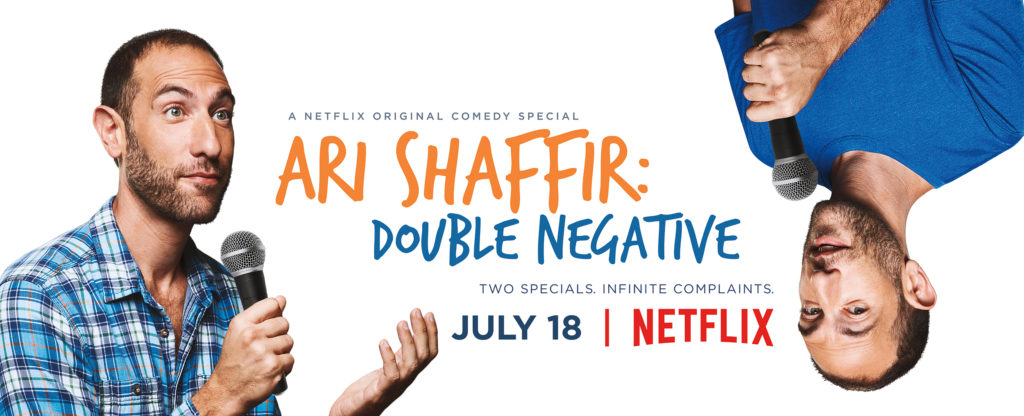I was at Just For Laughs in Montreal last month seeking out great comedy, but also looking for some Jewish inflected humour. There wasn’t a lot – a far cry from decades past when the festival, reflecting the comedy industry in general, was rife with Jewish comics.
I used to look forward to The Bar Mitzvah Show at Just For Laughs, in particular, which featured three or four Jewish comics (and a nice spread of Montreal bagels as well), but that show was sadly abandoned a decade ago as the audience got older and the comics got younger.
At previous Just For Laughs festivals, I saw some marvellous comics doing Jewish material: the incomparable Elon Gold, the clever Modi (one name, like Cher!) and the inimitable Judy Gold, all from New York. And there were always a lot of Jewish comics doing general material, but somehow their Jewishness shone through anyways.
This year, unfortunately, it was not the case. Documentaries like Alan Zweig’s When Jews Were Funny have made the case that comedians traditionally are outsiders, but as Jews have assimilated and become successful, we aren’t outsiders anymore.
Still, you could see Howie Mandel, Rachel Feinstein, Moshe Kasher and others doing their schtick through the week. But the show that caught my attention was Ari Shaffir’s Jew, an in-your-face title that would not have had the same provocative impact as a show called Lutheran.
Shaffir is a 44-year-old American comic who attended Yeshiva University in New York City. He then moved to Los Angeles and began his climb up the comedy ladder. He’s now a headliner with his own Netflix special, Double Negative.

He’s not generally known for his Jewish material, but for his uncensored riffs on politics, relationships, cannabis and sex. He’s never tried to hide his Jewishness, but this show promised to deal with it explicitly. I’ve always found Shaffir funny, so I was intrigued.
The show was staged in a punk club, of all places, and looking around, I noticed the audience was definitely multicultural. This was not going to be a show sharing an insider’s point of view for a Jewish audience, but a show about Jewishness for a multiracial one. Which is, I think, an ambitious undertaking.
The first thing Shaffir shared was that he was brought up Orthodox, which I did not know. And although he no longer practises the Judaism of his upbringing, he was more than happy to share the stories of his youth with the sold-out crowd. He riffed on Bible stories from the Old Testament, especially Noah and Adam, and did a long piece on Sodom and Gomorrah (which could never be quoted in a family publication).
He made sport of Jewish holidays and their traditions, including Rosh Hashanah and Passover. His description of the High Holiday season tradition of kapparah (where a live chicken is waved around the head to absorb any evil thoughts that might have transpired during the year) was worth the price of admission just to see the expression on non-Jews’ faces at the description of this esoteric ritual.
The punch line: “And then we sell the chicken to the Gentiles!”
This is what I liked most about the show: its specificity and sense of detail about lesser-known Jewish traditions. Woody Allen has a couple of mikveh jokes, but Shaffir takes his time to really go into the minutiae and find the humour in the less obvious material.
Granted, this might not be a show that very observant Jews would enjoy. It’s transgressive, the language is salty and there could be an objection that Shaffir is giving away “state secrets.” Still, there were no walkouts during the show, not even from those wearing yarmulkes (who seemed to be having fun in that punk club festooned with treif images of devil worship).
READ: COMEDY EXPLORES THE HUMAN-DOG CONNECTION
I caught up with Shaffir at the Edinburgh Fringe Festival, the self-proclaimed “largest arts festival in the world,” where he was doing a different one-man show. He told me that the Jew show was not to be a onetime deal – he plans to tour it all over North America. He admitted that he waited a long time to tackle the topic because he “never felt strong enough as a comic to tackle it until now.”
Back in Montreal, I attended the Homegrown Show, featuring a dozen young Canadian comedians who make fun of our great land. I didn’t expect to find any Jewish content there. Then a comic from Vancouver named Jacob Samuel took the stage and floored me, and the audience, with this bit:
“If you don’t know a lot about Judaism, all you need to know is that Jews are just the hipsters of religion. Because we got the original Bible thousands years ago and we’ve refused every single upgrade since. We only enjoy God’s early work. Before he sold out and had a kid.”
There you go. Jewish comedy. Alive and well.






